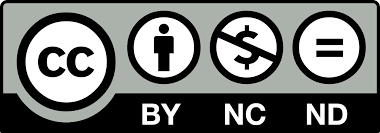Making Work Sustainable in Business and Social Enterprises
Agnieszka Furmańska-Maruszak
Social Policy Unit, Institute of Sociology, Nicolaus Copernicus UniversitAgata Sudolska
Department of Enterprise Management,Faculty of Economic Sciences and Management, Nicolaus Copernicus UniversityAbstract
The aim of this paper is identification of the activities supporting the implementation of a sustainable work concept both in firms and social enterprises operating in Poland. The paper focuses on activities with regards to the quality of the job and work environment, improving employee health, safety and well-being, introducing flexible hours, developing employee skills and reconciling working and non-working life. Moreover, the paper is an attempt to identify the components of an organization’s philosophy favorable to innovations that mostly support the implementation of the sustainable work concept. The research findings presented in the paper prove that firms are focused mainly on introducing new solutions related to employee health and safety as well as social and living condition improvement. On the other hand, social enterprises are more active in implementing the solutions enabling employee reconciliation between work and personal life. The paper also presents the correlation coefficients between chosen components of an organization’s philosophy favorable to innovations and the need for introducing solutions oriented toward a sustainable work concept. The research findings point out the importance of making innovation management the central element of organizational strategy. The second important component of an organization’s philosophy relates to focusing on positive relations between employees, both at the organizational level and in teams. Additionally, in the case of social enterprises, the paper highlights the importance of involving people undergoing the reintegration process in creating innovations.
Keywords:
sustainable work, organization’s innovation philosophy, social enterprisesReferences
Bal-Woźniak T. 2013. O potrzebie wykorzystywania nowych form koordynacji współpracy w zarządzaniu innowacyjnością. Nierówności społeczne a wzrost gospodarczy, 30: 404-423.
Burke R.J. 2015. Workplace learning: vital at all ages. In: The Multi-generational and Aging Workforce. Challenges and Opportunities. Eds. R.J. Burke, C.L. Cooper, A.S.G. Antoniou. Edward Elgar Publishing, Cheltenham- Northampton.
Calvano L. 2015. Balancing eldercare and work. In: The Multi-generational and Aging Workforce. Challenges and Opportunities. Eds. R.J. Burke, C.L. Cooper, A.S.G. Antoniou. Edward Elgar Publishing, cheltenham- Northampton.
Carmeli A., Brueller D., Dutton J.E. 2009. Psychological Conditions of Personal Engagement and Disengagement at Work. Academy of Management Journal, 33(4): 692-724.
Chiaburu D.S., Harrison D.A. 2008. Do Peers Make the Place? Conceptual Synthesis and Meta-Analysis of Co-Worker Effects on Perceptions, Attitudes, OCBs, and Performance. Journal of Applied Psychology, 93: 1082-1104.
Eurofound. 2012. Sustainable work and the ageing workforce. Publications Office of the European union, Luxembourg.
Eurofound. 2015a. Sustainable work over the life course: Concept paper. Publications Office of the European Union, Luxembourg.
Eurofound. 2015b. Third European Company Survey - Workplace innovation in European companies. Publications Office of the European Union, Luxembourg.
Eurofound. 2016. Sustainable work throughout the life course: National policies and strategies. Publications Office of the European Union, Luxembourg.
Field J. 2015. Lifelong learning and the multigenerational workforce. In: The Multi-generational and Aging Workforce. Challenges and Opportunities. Eds. R.J. Burke, C.L. Cooper, A.S.G. Antoniou. Edward Elgar Publishing, Cheltenham-Northampton.
Gregory K. 2011. The Importance of Employee Satisfaction. The Neuman Business Review, Spring, p. 29-37.
Hunter S.T., Bedell K.E., Mumford M.D. 2007. Climate for Creativity: A Quantitative Review. Creativity Research Journal, 19: 69-90.
Improving Employee Health and Well-Being. 2014. Eds. A.M. Rossi, J.A. Meurs, P.L. Perrewe. Information Age Publishing, Charlotte, NC.
Isaken S.G., Ekvall G. 2010. Managing for Innovation: The Two Faces of Tension in Creative Climates. Creativity and Innovation Management, 19(2): 73-88.
Isaken S.G., Lauer K.J. 2002. The climate for creativity and change in teams. Creativity and Innovation Management, 11: 74-86.
Isaken S.G., Lauer K.J., Ekvall G., Britz A. 2001. Perceptions of the Best and Worst Climates for Creativity: Preliminary Validation Evidence for Situational Outlook Questionnaire. Creativity Research Journal, 13(2): 171-184.
Lewicki R.J., Bunker B.B. 1996. Developing and Maintaining Trust in Work Relationships. In: Trust in Organizations: Frontiers of Theory and Research. Eds. R.M. Kramer, T.R. Tyler. Sage Publications, Thousand Oaks, p. 114-139.
Loewe P., Dominiquini J. 2006. Overcoming the barriers to effective innovation. Strategy and Leadership, 34(1): 24-31.
Marrewijk M. Van, Were M. 2003. Multiple Levels of Corporate Sustainability. Journal of Business Ethics, 44(2): 107-119.
McKnight D.H., Chervany D.H. 1996. The Meaning of Trust. University of Minnesota, Minneapolis.
McWilliams A., Siegal D.S., Wright P.M. 2006. Guest editors' introduction, Corporate social responsibility, strategic implications. Journal of Management Studies, 43(1): 10- 18.
Pan-European poll on occupational safety and health. 2012. EU-OSHA (European Agency for Health and Safety at Work). Seminar on OSH research priorities, 10-11 May, Paris.
Pirson M. 2008. Facing the Trust Gap Measuring and Managing Stakeholder Trust. SVH, Saarbrucken.
Rymsza A., Rymsza M. 2015. Innowacje społeczne w organizacjach pozarządowych i przedsiębiorstwach społecznych. In: Innowacyjna polityka społeczna. Eds. M. Grewiński, A. Karwacki. Wydawnictwo Wyższej Szkoły Pedagogicznej im Janusza Korczaka w Warszawie, Warszawa, p. 322-336.
Social Policy Unit, Institute of Sociology, Nicolaus Copernicus Universit
Department of Enterprise Management,Faculty of Economic Sciences and Management, Nicolaus Copernicus University
License
An Author declares that his paper has not been published before (under the same or another title, or is a part of another publication) and does not infringe copyrights of other persons**. At the same time, the Author transfers to the Publisher the exclusive right to publish and to circulate this work in print in the form of a non-serial journal publication and in a form of an electronic publication.
The journal is available on Creative Common license CC-BY-NC-ND






